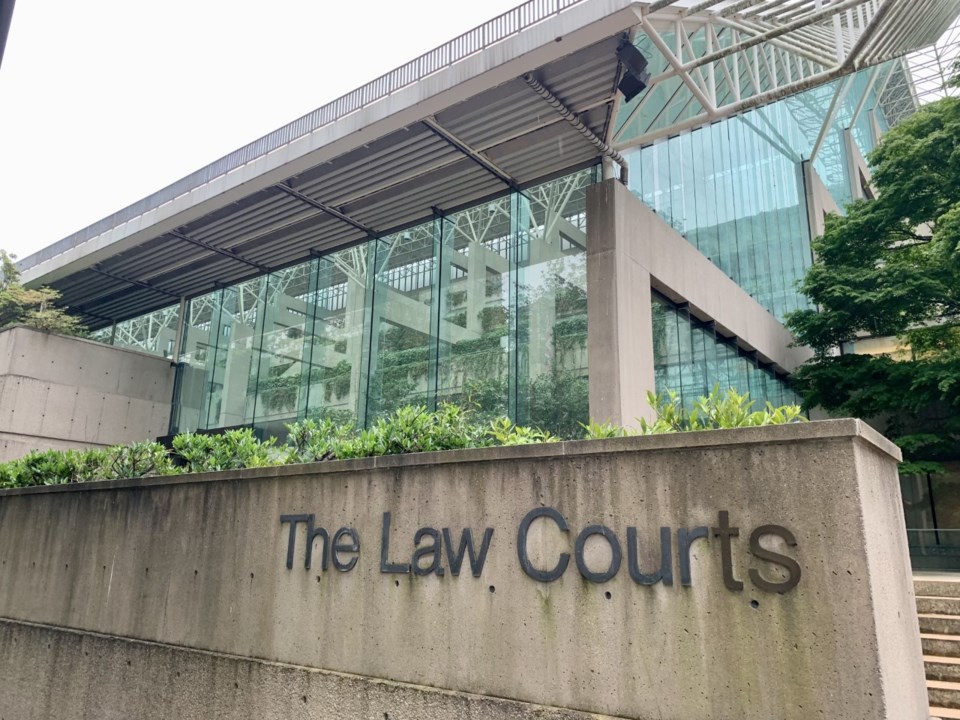Advisory: This story includes disturbing details about a murder trial. Reader discretion is advised.
A sexual assault expert who said injuries to a 13-year-old girl found dead in a Burnaby park six years ago "very strongly" suggested sexual assault was forced to defend her conclusions and impartiality under cross examination Friday.
Dr. Tracy Pickett, the director of B.C. Women's Hospital sexual assault service, was cross-examined by defence lawyer Ben Lynskey at the trial of Ibrahim Ali in B.C. Supreme Court in Vancouver.
Ali has been charged with first-degree murder in the death of a 13-year-old girl whose body was found in Central Park on July 19, 2017, less than two hours after her family reported her missing.
Ali has pleaded not guilty.
The girl cannot be identified because of a publication ban.
Earlier in the week, Pickett had told the jury the constellation of injuries found on the girl, including tearing within the vagina and anus and bruising on the wall of the rectum "very strongly indicates non-consensual activity."
But Lynskey took Pickett to a section in her own report that said sexual assault studies reflect "considerable overlap" between the location and types of injuries in consensual and non-consensual sex "such that it is impossible to speculate on consent based solely on a consideration of the location or type of injury in isolation."
Pickett explained that she had made that statement in the context of saying findings in the literature are "difficult to compare" because of factors such as differences in the way patients are identified, the way injuries are defined, the time since the injury and the way examiners are trained.
Pickett said further that she hadn't relied solely on the literature to reach her conclusions about the case.
"It's also based upon my experience, training, what I’ve seen," she said.
But Lynskey suggested Pickett had avoided saying in court that there was "considerable overlap" in injuries in consensual and non-consensual sex because she was "advocating" for the Crown, even though expert witnesses are supposed to remain impartial.
"What you’re trying to do, is you're trying to fortify that this was non-consensual sexual activity that you examined in this case when the literature does not support that," Lynskey said.
Pickett disagreed, saying the literature does support her conclusions.
Lynskey went on to suggest all the injuries Pickett had considered to form her conclusion that the sexual activity in the case was likely non-consensual could have been caused by other means.
"Looking at any one of these injuries individually, you can’t say consent or non-consent just based on looking at the injury, right?" Lynskey asked.
"No, I cannot," Pickett said.
Lynskey suggested there was no way to know whether some of the injuries were related to sexual activity at all.
"For instance, the four abrasions you that identified on the arm could have been caused by (the girl's) mother grabbing her on the way out the door," Lynskey said.
Pickett said her conclusion about those bruises was only that they were consistent with a "grab-type mechanism."
The trial and Pickett's cross-examination is expected to continue Tuesday.
The Crown's theory is that Ali and the girl were strangers to one another and that he attacked her on a trail in Central Park, dragged her into the forest and strangled her to death while sexually assaulting her.
The defence has not outlined its theory but has suggested the killer and whoever had sex with the young teen — "either forced sex or sex" — are not the same people.
Follow Cornelia Naylor on Twitter @CorNaylor
Email [email protected]




